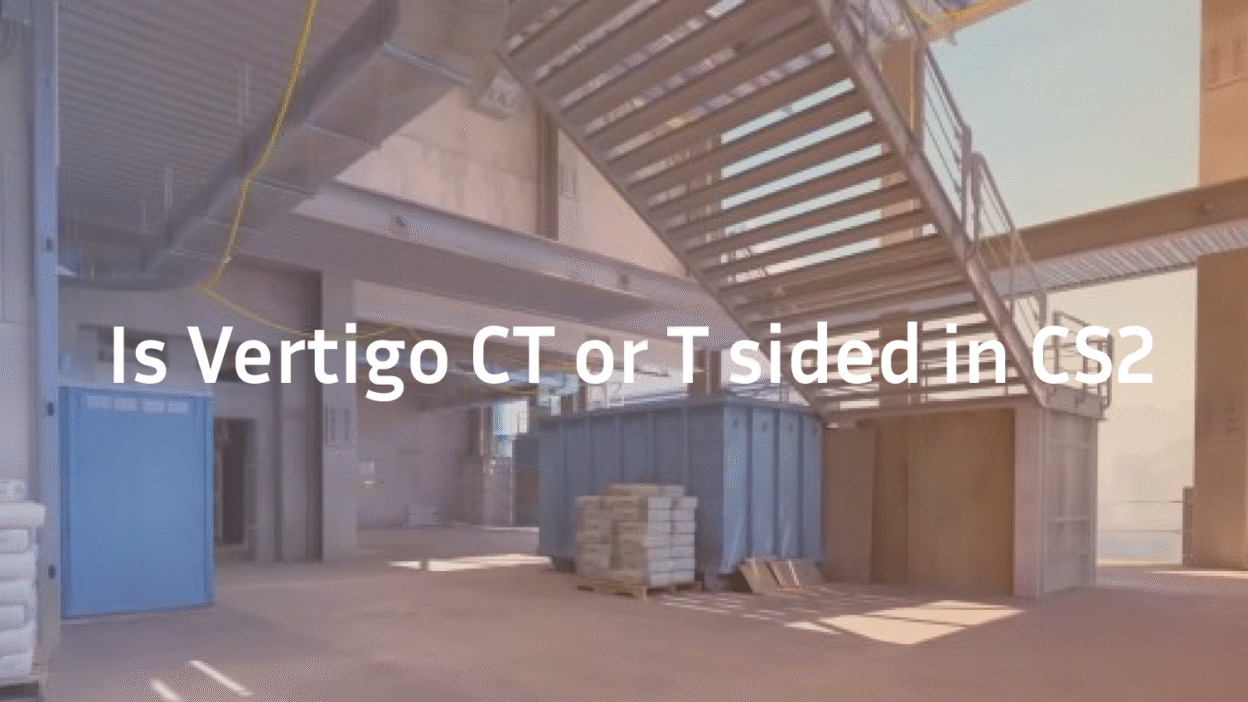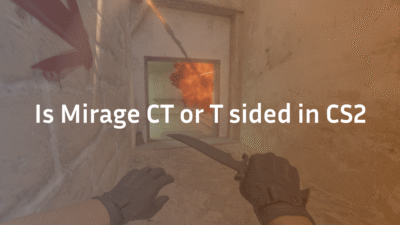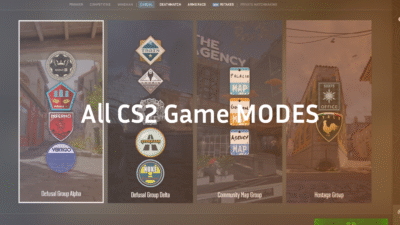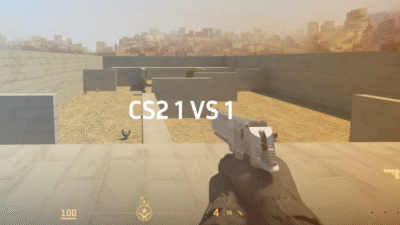If you’re wondering “Is Vertigo for Terrorists or Counter-Terrorists?” or asking “Is Vertigo CT or T-sided?” while navigating ranked games, you’re in the right place. This guide breaks down Vertigo’s balance, key mechanics, and how to play each side effectively on this vertical battlefield. Think of it as your go-to CT road map for Vertigo.
Want to improve your map knowledge further? Check out our detailed Vertigo callouts to understand every key location before diving in.
Overview: CT and T Sided Maps in Counter-Strike 2
Before diving into Vertigo, it helps to understand what people mean by “CT-sided” or “T-sided” in CS2.
What Does “CT or T Sided” Mean?
In competitive matches, you’ll often hear players say “this map is CT-sided,” meaning the Counter-Terrorists have a higher win rate. Conversely, a “T-sided” map favors the Terrorists.
It all comes down to map design, rotations, and how much control each team can gain early in the round.
So when someone asks “Is Vertigo CT-sided?” they’re really asking which team statistically has the advantage.
Why Map Balance Matters in CS2
If a map is heavily CT or T-sided, it affects pick/ban strategy, side choice (CT or T first), and even team economy.
To see how other maps compare, you can explore Nuke callouts — a map known for being very CT-sided — or Anubis callouts, which tends to favor Terrorists.
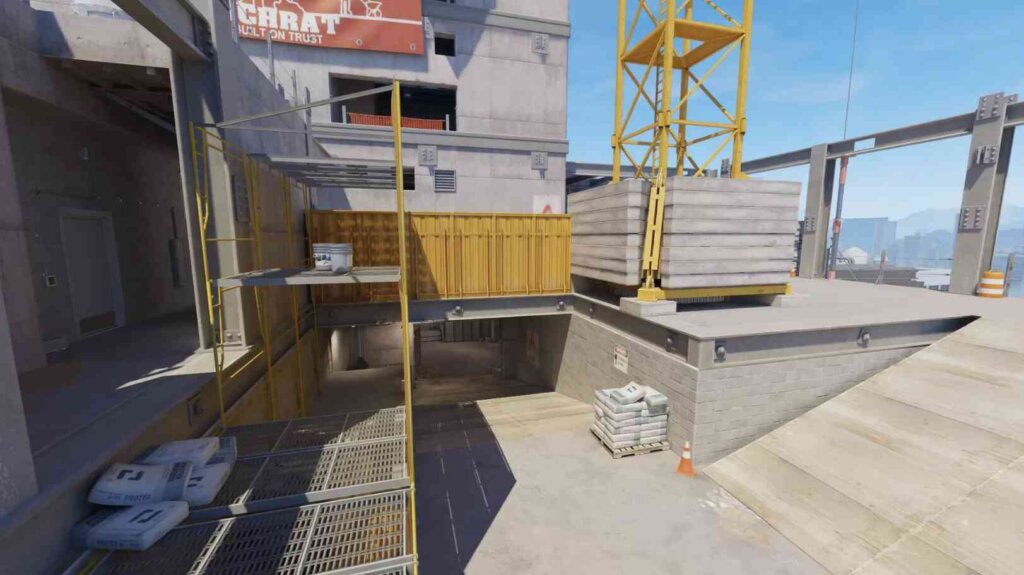
Vertigo Map Analysis
Vertigo is one of the most unique maps in Counter-Strike 2, offering a blend of vertical and horizontal combat that challenges both sides differently.
Layout and Design Overview
Set on a high-rise construction site, Vertigo’s design includes two main bombsites across multiple floors.
- Terrorists spawn on the lower level and push upward.
- Counter-Terrorists start with higher ground, giving them a natural early positional advantage — similar to Nuke.
Want to learn exact positions and callouts? See the Vertigo callouts guide.
Bombsite Structure and Entry Points
Bombsite A:
- Terrorists typically push through ramp or mid.
- CTs can hold from elevated spots, making early ramp control vital.
Bombsite B:
- Tighter entry routes through stairs or mid connector.
- Narrow chokepoints make it easier for defenders to hold angles.
Compared to Anubis, Vertigo’s entry points are narrower, giving defenders a slight edge.
Rotational Dynamics and Timing
CTs rotate quickly between A and B through compact, vertical routes.
Ts, however, must take longer, riskier paths — somewhat like the structure of Nuke, where rotations are tight and heavily defender-favored.
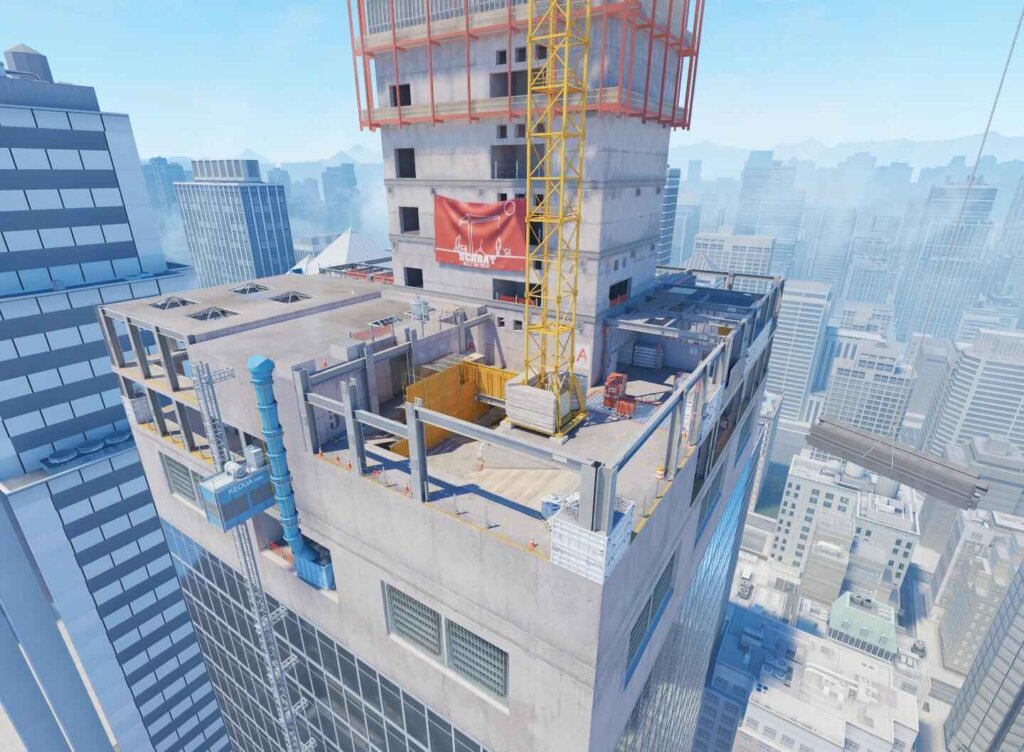
Utility Usage and Map Control
Vertigo’s vertical nature affects how smokes, flashes, and grenades behave.
Learning grenade lineups and utility binds can give you a big edge — check out CS2 grenade binds for an easier setup.
If you’re familiar with Inferno, where horizontal map control dominates, Vertigo flips the script — it’s all about vertical timing and layered utility.
Pro Play Statistics and Win Rates
Recent match data places Vertigo’s CT win rate at around 52%, while T win rate sits near 48%.
That slight CT advantage puts Vertigo in the same category as Ancient and Nuke — both leaning CT-sided but still playable for coordinated Terrorist teams.
Comparing Vertigo to Other Popular Maps
| Map | Favored Side | Why |
| Mirage | CT | Strong defensive holds and mid control |
| Nuke | CT | Tight rotations, vertical control |
| Inferno | Slight T | Mid and banana pressure |
| Anubis | T | Multiple entry routes and open sites |
| Vertigo | Slight CT | Vertical design, narrow entries |
| Ancient | Slight CT | Strong defensive angles |
Want to explore more? Learn the Mirage callouts or check the Inferno callouts to see how those maps differ strategically.
Factors Influencing Map Sidedness
Map Layout and Chokepoints
Vertigo’s tight ramps and ladders favor CTs, much like Nuke. Terrorists must commit utility early to take control.
Economy and Weapon Balance
CTs can defend effectively with minimal investment, while Ts need to spend heavily on smokes, mollies, and flashes to execute safely.
Team Strategy and Coordination
Even slightly CT-sided maps can be flipped by strong teamwork and mid-round adaptation — something top teams regularly showcase in pro play.
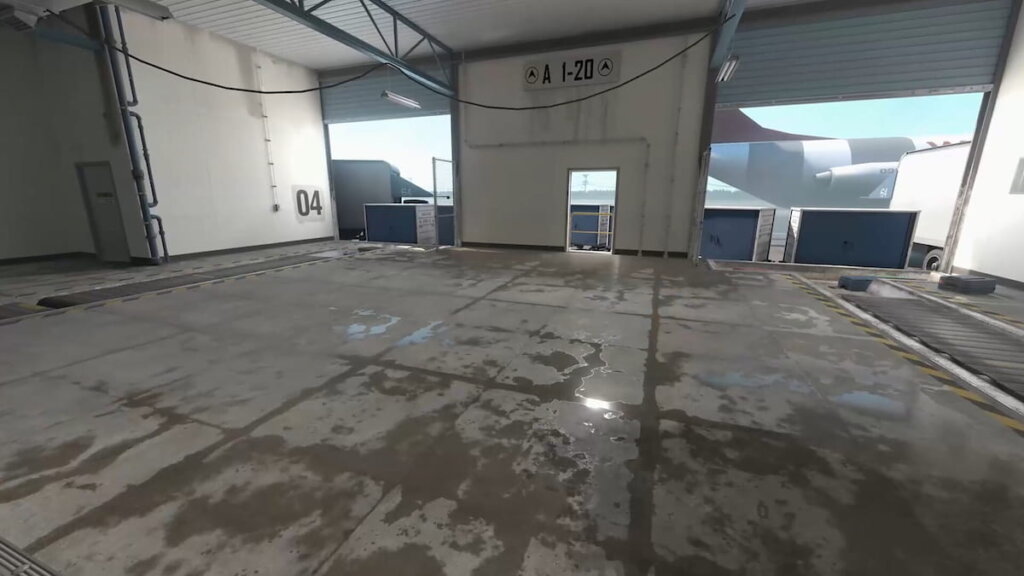
Final Verdict: Is Vertigo CT or T Sided in CS2?
- CT win rate: ~52%
- T win rate: ~48%
- Verdict: Slightly CT-sided
Vertigo’s design naturally favors defenders due to high ground control, chokepoints, and rotation speed. However, strong utility use and good coordination can easily swing rounds for Ts.
If you’re improving in ranked mode, understanding map balance helps a lot — learn more about CS2 ranks and how map-sidedness impacts your climb.
Tips for Playing Vertigo as CT and T
CT Tips
- Hold high ground and control ramp early.
- Use molotovs and smokes to delay T pushes.
- Communicate rotations clearly to avoid site gaps.
T Tips
- Secure mid control early in the round.
- Use coordinated utility to clear elevated CT angles.
- Mix up ramp and B executes to keep defenders guessing.
- Avoid solo entries — timing and teamwork are key.
CS2 Vertigo — CT vs T Performance Summary
| Category | CT Side (%) | T Side (%) | Notes / Insights |
|---|---|---|---|
| Overall Win Rate | 52% | 48% | Slight CT advantage due to high ground and tight chokepoints. |
| Pistol Round Win Rate | 51% | 49% | Balanced; both sides rely on early ramp control and utility. |
| Round 2 Conversion Rate | 75% | 70% | CTs often convert early rounds with superior positioning. |
| Win Rate After First Kill | 72% | 68% | CTs capitalize on early picks using fast vertical rotations. |
| Win Rate After First Death | 28% | 30% | Ts slightly better at clutching after losing first player. |
Summary
ertigo is slightly CT-sided, but remains one of the most balanced and tactical maps in CS2. With smart utility, proper positioning, and solid teamwork, either side can dominate.
To master Vertigo completely, study the Vertigo callouts and learn how different pros adapt their strategies on this skyscraper battlefield.
